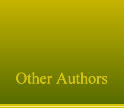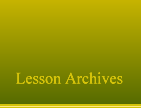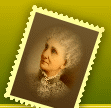America – Cradle For The Second Coming Of The
Christ
CHAPTER V
A NEW NATION UNDER GOD
Washington's Inaugural Address
 On April
30, 1789, in his inaugural address as our first president, George Washington
acknowledged God's providential hand in the establishment of our nation: On April
30, 1789, in his inaugural address as our first president, George Washington
acknowledged God's providential hand in the establishment of our nation:
It would be peculiarly improper to omit in this first
official act, my fervent supplication to that Almighty Being who rules over the
universe, who presides in the council of nations, and whose providential aid
can supply every human defect, that His benediction may consecrate the
liberties and happiness of the people of the United States; a government
instituted by themselves for these essential purposes.
No people can be bound to acknowledge and adore the
invisible hand which conducts the affairs of men more than those of the United
States. Every step by which they have advanced to the character of an
independent nation seems to have been distinguished by some token of
providential agency....
Thus was begun, in America, a cradle for Mary Baker Eddy's
great revelation, discovery, and founding of Christian Science in the
consciousness of humanity. A century later, a few decades after the end of the
Civil War, Mary Baker Eddy would write:
Religious liberty and individual rights under the
Constitution of our nation are rapidly advancing, avowing and consolidating the
genius of Christian Science. (My. 200:1)
Because Mrs. Eddy had seen man (all humanity) as undivided
from God, she recognized our Constitution and its Bill of Rights as a giant
leap forward in human history. She understood these founding documents as a
necessary step in showing God as the source of conscious human individuality.
"God," she said, "sustains my individuality. Nay, more He is my individuality
and my Life. Because He lives, I live" (Un. 48:7).
Because God was the individuality of Columbus, of the
Pilgrims, of those who framed the Declaration of Independence and the
Constitution with its Bill of Rights, and because these individuals were
spiritually-minded and listened for God's prompting, they became God's
instruments, and played their part in carrying out God's divine plan for
universal salvation.
There can be no question that the work of our Founding
Fathers was done in response to and in fulfillment of a divine plan. That there
was a divine pattern, in which is woven the life and work of Mary Baker Eddy,
can be seen from examples such as the following:
In the colonial crisis times of 1776, the federal seal
of our newly founded Republic carried a picture of the Great Pyramid. Suspended
directly above it was the rejected headstone, portraying the all-seeing Eye of
God. Never has any nation, in any of its federal insignia, engraved profounder
truths than those set forth in that seal. (George R. Riffert, Great Pyramid,
Proof of God)
Here is to be seen a recognition by the founders of this
great republic that the symbolic Bible in Stone was awaiting the placement of
the rejected capstone portraying the all-seeing Eye of God.
Mary Baker Eddy was guided in her life's work under the
vigilance of the "all-seeing Eye of God." She was "a scribe under orders" who
could not refrain from transcribing what God indited. (See Mis. 311:26).
When Mary Baker Eddy published Science and Health, she figuratively lowered in
place the capstone shown held in suspension on the Federal seal. It was in this
great republic, the United States of America, that the Bible's sacred prophecy
was to become reality.
The Establishment of Congress
"The human footsteps leading to perfection are
indispensable." Each footstep leads to the next. Article I of the Constitution
established Congress, and in this national legislature much of this nation's
most important history has been forged.
The history of this vital institution has sometimes been
stormy. That we are free and equal under the law of the land means that the
humblest man can stand up to the President of the United States and say, "I do
not agree with you." The right to disagree is fundamental to freedom and
growth. The Constitution was finally accepted because the delegates felt free
to disagree, and so worked out compromises.
The early patriots were not afraid of dissent. They were an
indomitable breed, people of faith and determination. They founded this nation
on high principles, and on these exalted and enduring principles a great and
prosperous country was built as liberty-loving immigrants from all nations
sought our shores.
Charles Pinckney, one of South Carolina's delegates to the
1787 Constitutional convention, is a good example. Twenty-eight provisions in
the Constitution were contained in the Pinckney plan and in no other, but he is
best remembered as the author of Article VI, a provision forbidding any
religious test for federal office. This took a great deal of courage, since in
1787, and for decades following, many states required officials to adhere to a
particular religion. Pinckney would have been utterly dismayed at today's
attempts by a small but influential vocal minority to dismantle the wall of
separation between church and state in order to rob people of freedom of choice
in the most personal and private of matters.
This nation was hammered out by people disagreeing with one
another. The great scope of ideas honed in debate by the distinguished
delegates to the Constitutional Convention, men like Pinckney and Madison, and
crafted into the Constitution and the Bill of Rights, shaped American
history and sent us well equipped and strong onto the path of freedom. Out of
the thinking of a free people, a tremendous country has been built.
People of the caliber of Plymouth Colony's William
Bradford--who ascribed every good happening to God--have put their impress upon
the American nation. Although sometimes, like the biblical St. Paul, these
patriots may have been in error in their disagreement with a right action,
their inner integrity saved them and the cause of liberty and justice.
Saul Pett's Short History of
Congress
The following short history, taken by permission from a 1987
Associated Press release by Saul Pett highlighting the beginning of America's
government, shows how the character of this nation was established by people
disagreeing with each other--as its patriots took the indispensable human
footsteps leading to perfection:
One Hundred Congresses
Ago
One hundred Congresses ago, the government of the
United States began at the corner of Wall and Nassau Streets in
Manhattan.
It began with a dozen clerks who were owed back pay. It
began with an empty treasury, a heavy debt, an army of 672 officers and men, no
navy, no taxes or revenues coming in, no machinery for collecting them, no
judiciary, no law enforcement system, no executive branch, no
president.
The new tenants at Wall and Nassau had a blue print
called the Constitution--but little else. And they had the temerity to think
man was capable of self-government.
The war that had united them was now won and the king
was gone. Now they had to learn to govern themselves and live together in
something called the Congress of the United States.
But Congress, from the beginning, threatened to be
stillborn. It met on March 4, 1789, and immediately adjourned because of the
absence of a quorum. On that day only eight of the 22 members of the new Senate
and 13 of the 59 members of the new House made it to New York, the capital.
(The capital was later moved to Washington, D.C.)
Muddy Roads and Political
Differences Prevented a Quorum on the First Day
and the 30th
The muddy roads, the political differences, the still
casual view of national government combined to prevent a quorum on the second
day. And the third. And the 30th.
It wasn't until April 6 that both houses of Congress
found a majority present and the government could begin in Federal Hall, a
renovated city hall.
As its first order of business, Congress presided over
the counting of ballots in the Electoral College. George Washington was the
unanimous choice for president. John Adams would be vice president. The word
would take a week getting to Virginia. [Today it would take a few seconds, but
in 1789 news had no way to go but by horse or boat.]
Meanwhile, the House occupied the first floor of
Federal Hall, the Senate the second. Thus, they came to be known as the lower
chamber and the up per chamber, a matter of altitude, not rank. The
Constitution regarded neither as superior to the other, though the Senate
quickly adopted a lordly style.
The Senate spent days debating whether the chief
executive should be known as "His Highness, the President of the United States
of America and Protector of the Rights of the Same."
Adams favored the title; he thought the public needed
all the trimmings it could get to respect the new government properly.
"President," he argued, was too common; even fire
companies and cricket teams had presidents.
The Senate thought its members should be paid more than
the House. In the matter of seating protocol during a joint session addressed
by the president, senators tended to favor the British practice when the king
addressed Parliament; the House of Lords sat, Commons stood. The American House
would have none of it.
For his inaugural, Washington wore a new suit of brown
homespun to encourage the country's infant textile industry. He took the oath
on a balcony outside the Senate chamber.
After intense debate, Congress agreed to a salary of $6
a day while in session for members of both houses. This came over the furious
objection of most senators, who thought their prestige and burdens warranted
more.
Senators, one declared, should not have to live in
"holes and corners" and associate with "improper company," Alvin Josephy tells
us in his vivid chronicle, "On the Hill."
Even more delicate was the matter of what to pay the
Father of His Country. In his inaugural address, President Washington had
indicated that repayment for "such actual expenditures as the public good may
be thought to require" would suffice without salary, as it did during the
Revolution. Awed as they were by General Washington, members of Congress were
also awed by the expense accounts he turned in during the war. They chose to
pay him $25,000 a year in salary AND expenses.
Congress that year created the first three departments
of the government--War, State and Treasury.
For the War Department, Congress authorized a payroll
of five--the secretary of war (a general), three clerks and a messenger--to
direct an army of 672.
The State Department had a domestic staff of six and
Treasury had 30. Treasury was the department its creators were most wary of.
Congress insisted that the secretary of the treasury be directly responsive to
Congress and that he was to have no direct contact with the money in the
Treasury.
No problem. There was no money in the treasury, and it
would be months before any came in. For the first revenues, Congress wrestled
with a list of tariff and tonnage duties on imports and immediately ran into an
intramural cat fight.
South Carolina needed to import steel for its farm
tools. Pennsylvania needed a tariff on steel to protect its own new industry.
Et cetera, et cetera. Congress needed four months to agree on a list. It would
be ever thus.
In the same period, Congress designed and established
the federal judiciary--a Supreme Court of six members, 13 district courts and
three traveling circuit courts.
While the courts owed much to British precedent, the
first Supreme court honored Thomas Jefferson's plea to "discard the monstrous
wig which makes English judges look like rats peeping through bunches of
oakum."
A national government of three branches was now in
place. But for how long?
Two opposite fears continued to trouble the new
nation's leaders. Would the central government prove too strong? Or would it be
too weak to be effective? On the one hand, Jefferson feared tyranny. On the
other, Alexander Hamilton feared anarchy.
Antifederalists in Virginia and New York demanded
another convention to revise the Constitution and guarantee that individual
rights would prevail against the power of the government. Rep. James Madison
saw that as a threat to cripple the government before it could learn to
walk.
To forestall that nightmare, he threaded his way
through 210 constitutional amendments proposed by various states. Pruning,
combining and rewriting, he presented 19 amendments to Congress. Congress
debated them down to 12, the states ratified 10 and the basic document of the
republic now had a Bill of Rights.
The government was still on its feet, but wobbling. It
still had the debt it started with$55 million borrowed at home and abroad to
pay for its War of Independence. [Maybe they hoped they had borrowed from
pessimists who wouldn't expect repayment!]
Congress Moves From
New York to Philadelphia to Washington,
D.C.
The Founding Fathers had concluded that New York was a
nice place to visit but they wouldn't want to live there. They left it to the
First Congress to find a permanent capital.
President Washington owned formidable acreage in the
Potomac area. Senator Robert Morris of Pennsylvania favored Philadelphia; he
owned much land nearby. After much debating and discussion, Mr. Jefferson had
Mr. Hamilton and Mr. Madison to dinner; differences were ironed out;
compromises effected; and so it came to pass that Congress voted to move out of
New York after less than two years; Philadelphia would be the temporary capital
for 10 years and a 10 mile square district on the Potomac, to be selected by
George Washington, would become the permanent capital of the United
States.
On the evening of March 3, 1791, in the flicker of
candlelight in a borrowed courthouse in Philadelphia, the first Congress rushed
to a close, as it still does today, in a flurry of last minute bills. In three
sessions, it had worked 519 days, enacted 118 statutes and formed a government
like no other on earth [where lack of discernment, foresight or liberality of
any single mind would often be corrected through the perspective of other
minds.]
The first time President Washington sought the advice
and consent of the Senate he came in person with proposed treaties with four
Indian tribes. He clearly thought the matter could be handled quickly.
Vice President Adams read the first treaty aloud to the
Senate over the intruding noise of Wall Street. The doorkeeper closed the
windows. Adams asked if the Senate was ready with its advice and
consent.
One senator asked for a second reading. Washington
glowered. Adams read it again and again asked for advice and consent. An
awkward pause ensued while the Senate sought the courage to be deliberative in
the impatient glare of the president.
Finally, on its insistence, all the treaties were read
aloud. Now emboldened, the Senate voted to refer them to committee for
discussion (out of Washington's hearing). Would the president then be good
enough to return two days hence?
"This defeats every purpose of my coming here,"
Washington remonstrated, but he came back and Senate debated, and only then,
with some change, did it give its advice and consent. It had met the first test
of checks and balances. The imperious first president never came back in
person.
Differences of opinion were apt to become more personal
in Congress' first 100 years, when the country was closer to the
frontier.
In 1798, during debate about strained relations with
France, two House members spit tobacco juice on each other and fought with a
hickory cane and fireplace tongs while their partisans cheered. On the brink of
the war of 1812, spittoons were thrown. In the tensions over slavery [leading
up to the Civil War], senators took to carrying concealed derringers and bowie
knives into the chamber.
After a contentious debate one can almost hear a senator
muttering: "Oh God, I thank Thee that I am not like the others--a liar, cheat,
nasty, dishonest or worse, like that Republican over there." It is equally easy
to imagine his opponent grumbling, "Are there devils on earth? I think there is
one in this Congress!"
But something greater than themselves was on the field. In
spite of their human shortcomings, the kingdom of God was within their true
consciousness, and these men were God's instruments in forwarding the human
race. The divine Father of us all knows how to use our good qualities to
promote His plan of universal Love. Sometimes even humor could save the
day:
In 1858, when the issue was whether to admit Kansas as
a slave state, 30 members fell to wrestling and punching until laughter finally
brought peace. The laughter resulted when one member yanked another man's hair
and found a wig in his hand.
Concluding his short history of Congress in the Associated
Press article, Saul Pett sums up the importance of this uniquely American
institution, as follows:
The Capitol of the United States is 187 years old. It
is large, bulky and beautiful, a wondrous place, a place to wonder.
Here, of an evening during the 30th Congress, Rep.
Abraham Lincoln of Illinois walked to Mrs. Spriggs' boarding house carrying
books he had borrowed from the Supreme Court library, which he had tied in a
big bandana and slung over his shoulder on a stick.
Here, Congress declared wars and sent unprecedented
help to friends and recent enemies. Here, it passed, amended, and replaced laws
in the mirror of the country's evolving conscience. It outlawed slavery [with
the Emancipation Proclamation and the 13th Amendment to the Constitution] and
guaranteed the right to vote. It made racial discrimination illegal and
profoundly reshaped free enterprise toward a balance between capital and labor,
between rich and poor.
Thus ends Mr. Pett's fascinating account of the first 100
Congresses. The 100th Congress ended as the First Congress ended, with the fall
of the gavel and intonement of sine die. And then the
101st Congress began. Thus do we "take the human footsteps leading to
perfection."
The Covered Wagons Roll
What mighty developments those first 100 Congresses saw!
Reflecting on America's history, Lincoln said, "No mortal council hath devised,
no human hand hath wrought those wonders."
Did the Founding Fathers foresee the great westward
expansion, which would open such vast territories and add state after state to
the new Union?
Recently, an elderly deacon, visiting a classroom, asked the
students to name the 50 states. When they could only recall forty, he said, "In
my day children could name all the states." "But, sir," a little boy said, "in
those days there were only thirteen!"
As soon as the Revolutionary War was won covered wagons
began to roll west. The British Ordinance of 1763 that restricted Western
settlement had been swept away with other vestiges of British rule. By 1870
nearly 600,000 people had forged toward the setting sun from various springtime
jumping-off places in Missouri and Iowa.
Here again, the Bible played a great part. Daily prayer and
Sunday services sustained the westward trek. Think of the raw courage exuding
from these early pioneers as their wagons and ox-carts lumbered first to Kansas
and Indiana and later toward California, Oregon, and Washington. Under the
searing prairie sun, in freezing snowdrifts, they fended off countless dangers,
nursed the sick, buried their dead and pressed on--thousands of graves along
the Overland Trail held victims of dysentery, smallpox and the dreaded cholera
epidemic. But, sustained by their faith in God's Word, the survivors forged
onward--westward!
While most settlers were looking for a better life for
themselves, many were also people with a mission. In 1856 when the Kansas
Territory was teetering between becoming a free or slave state, some New
England antislavery pioneers believed they were God-directed to establish an
outpost there. Henry Ward Beecher, a famous preacher, presented each man with a
Bible "to strengthen his faith, and a Sharps rifle to defend it."
Ingrained Trust of the Pioneers Readied
the Nation For Christian Science
The pioneers' ingrained trust and reliance on divine help
would later make this nation receptive to the teachings of Mary Baker Eddy, in
the second coming of the Christ.
In Christian Science one is taught to give up the mesmeric
belief in two powers, for this belief, operating as the carnal
mind, leads us astray, leads us into the biblical "far country" (Luke 15: 13).
Learning that God, infinite good, is all power, the ONLY power,
we are led back to the Father's house, "the kingdom of God within" our own
consciousness. As our consciousness accepts the truth about God and man, the
divine Principle expresses itself as divine idea.
Illusion and hypnotic suggestion have no real power. They
can't create anything real. Could the illusion that the earth was flat
actually create a flat earth?
In this Science our understanding develops of how and why "I
and my Father [Mind] are one." Rightly viewed, we are God's own selfhood, since
God's selfhood is the only selfhood there is. This great truth has urged
mortals forward since the beginning of time, but only with Mary Baker Eddy's
revelation, in the second coming of the Christ, has it been fully set forth
that we are Mind, Spirit, Soul, Principle, Life, Truth and Love--all terms for
God, for the "kingdom of God within you" and that evil of any nature is
illusion only, hypnotic suggestion.
The divine power operates unseen. We only see
the effects of this divine power. When we plant the seed of an oak tree we do
not see the power that operates to break that seed open, to make it take root,
and grow into a tree. The same infinite invisible power operates unseen "in
quietness and in confidence" in our divine individual consciousness. It speaks
to our receptive thought and causes us to act in a way that forwards the design
of God, divine Love.
Settlers and lawmakers alike have helped unfold infinite
good's divine plan. Today, for all our social discord, and in spite of cruel
storms that beset us from without and within, we still remain the longest
enduring society of free people governing themselves without dictators or
kings. This makes the United States the marvel and mystery of the world. This
enduring liberty is a greater blessing than the abundance of the earth from
"sea to shining sea."
In the coming centuries this country will become even
greater. What we are reaching for far exceeds what we have already grasped. We
are reaching for the truth about ourselves, the universal understanding that
there is no God up in the sky that can give us something, but rather God is the
ever-present kingdom within our consciousness. The question is, "When will
mankind awaken to their present ownership of all good?" When we see that our
own real Mind is the Principle, then, as in mathematics, once we know the
Principle, we have it all; there is no division of estate.
Christian Science has come to teach us that God is
individual infinite spiritual consciousness. As this becomes clear it will be
seen that God, our own right Mind, is the only actor; it is "He who performeth
that which is given me (or Congress) to do."
AMERICA book sections
Foreword | I |
II | III |
IV | V |
VI | VII |
VIII | IX |
X | XI |
XII | XIII |
Conclusion | Bibliography |



















